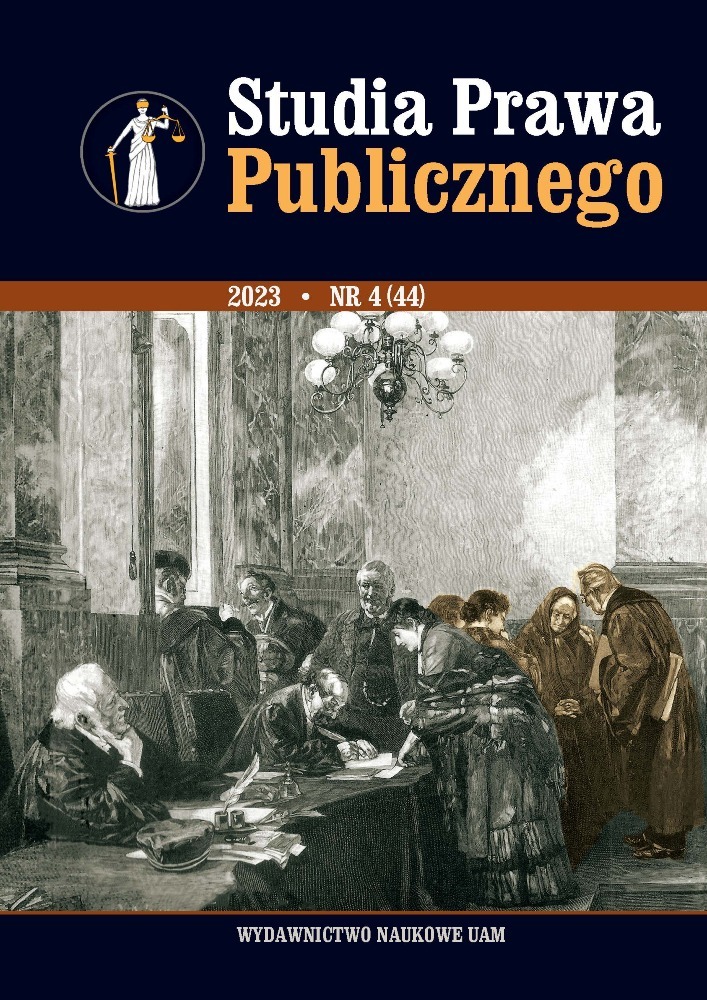O metodach badawczych w publicznym prawie gospodarczym
On research methods in public economic law
Author(s): Adam SzafrańskiSubject(s): Law, Constitution, Jurisprudence, Law on Economics
Published by: Uniwersytet Adama Mickiewicza
Keywords: research method; public economic law; ethos
Summary/Abstract: The article reflects on the issue of the research method in public economic law. In the first part, the concept of science is explained, which can be understood as a process consisting in the systematised pursuit of knowledge of the truth for idealistic or utilitarian purposes. The starting point is K. Jaspers’ definition, according to which the concept of science contains three elements: methodical cognition (1), certainty of knowledge (2), universal validity (3). Each of the elements indicated is then considered. Methodical cognition is to be distinguished from thought. The former is cognition of reality presupposing an awareness of the research method and its limitations. The latter is driven by intuition. The use of the method should be strongly linked to the research objective. The author then refers to the second defining element: certainty in the science of law. In his view, certainty is sought in answers to questions about the content of the law in force. Secondly, certainty is sought in the criteria evaluating the law and the results of this evaluation. The third element, i.e. universal validity, is related to the generally accepted methods of interpretation and the fundaments of law lying in human rights and the human dignity that is their source. The second part of the paper focuses on defining the research objective and the adequacy of the method, referring to the dogmatic, historical and comparative methods that should aim at determination the law in force and its evaluation. In the third part of the article, a proposal for a research method in public economic law is presented, which consists of three elements: presenting the context of the research objective, applying the dogmatic method, and evaluating the law in force. In the last part, attention is drawn to the need for uprightness of life, and therefore ethos, as a condition for the ability to recognize what is just.
Journal: Studia Prawa Publicznego
- Issue Year: 44/2023
- Issue No: 4
- Page Range: 53-70
- Page Count: 18
- Language: Polish

